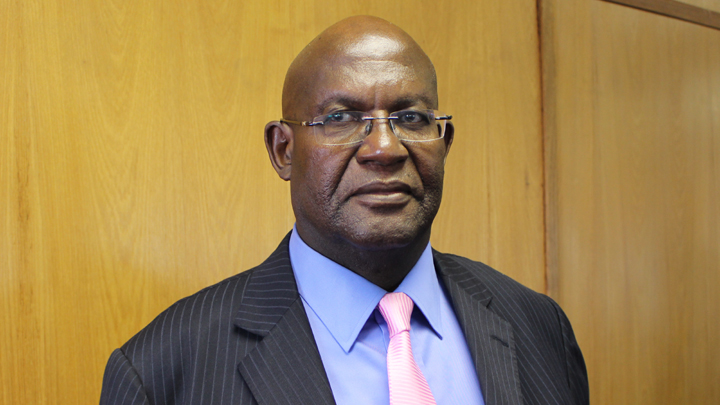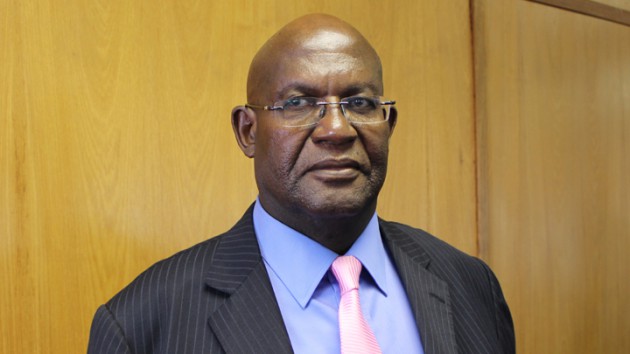Banks set aside $1bn for farmers

Golden Sibanda and Elita Chikwati
Local banks have set aside nearly $1 billion to support the 2015-16 agricultural season as Government yesterday started moving inputs under the Presidential Inputs Well-Wishers Scheme to farming areas for distribution to almost 350 000 households and the vulnerable.
On the $1 billion facility, Bankers Association of Zimbabwe president Mr Sam Malaba said yesterday that negotiations with the Government were in progress for a majority of farmers to access funding.
He said the bulk of the money was earmarked for strategic crops and livestock production.
Banks and the Government have been discussing how to make documents such as the 99-year leases bankable, although individual farmers can still approach financial institutions directly to negotiate funding under the facility.
Mr Malaba said $937 million of the $1 billion facility was for strategic crops such as tobacco, maize, sugar cane, cotton, soya beans and livestock production, mainly beef cattle, poultry and pigs to ensure food security.
“Banks continue to be supportive of agricultural activities in the country and clearly understand that increased agricultural production is dependent on availability of adequate financing for the sector,” Mr Malaba said.
He said despite the willingness of banks to finance the agricultural sector, there were still a number of impediments.
He cited lack of an effective farmers’ stop-order system to ring-fence encumbered sales of produce by farmers to deal with the problem of side marketing.
Mr Malaba said there were no competitive marketing systems and structures in the country, which led to breaks in the agricultural value chain.
The ring-fencing model for proceeds of agricultural sales funded by the private sector has worked well for tobacco and, to some extent, cotton production.
Banks are also concerned about over borrowing and side marketing by farmers.
“In line with Zim-Asset, there is need to fast-track the Agricultural Commodity Receipt Act and the Warehouse Receipt System to ensure that farmers are able to use their receipts as security for loans from banks,” said Mr Malaba.
On the Presidential Inputs Well-Wishers Scheme, Agriculture, Mechanisation and Irrigation Development Minister Dr Joseph Made said Government had mobilised seed maize and fertilisers which were being delivered to the provinces.
He said at least $500 000 had been set aside for cloud seeding.
“Treasury has authorised the acquiring of inputs through the Ministry of Agriculture, Mechanisation and Irrigation Development,” said Dr Made.
“The contract to start delivering inputs to various depots has been signed.
“Government has started moving 3 000 kilogrammes of seed, 15 000 tonnes of Compound D and 15 000 tonnes of top dressing fertilisers.”
Dr Made said the inputs scheme would also help cotton farmers who constitute nearly 60 percent of rural households.
“I urge farmers not to lose hope as they will be assisted with inputs,” he said. “Farmers in Gokwe, Sanyati, some parts of Mashonaland West, Mashonaland East and Mashonaland Central, southern parts of Manicaland and parts of Matabeleland South and Matabeleland North who rely on cotton will receive an input package for a quarter of a hectare which will be announced soon.
“The package has been selected so communities that produce the crop will earn an income and be able to buy maize from other provinces.”
Dr Made said Government had paid famers for the grain delivered during the 2014/15 season to enable them to buy inputs.
He said Treasury had released $100 million for grain purchases and that starting next week, farmers who delivered their grain in this year’s marketing season would start getting their money.
This selling season, the GMB has so far received 50 000 tonnes of maize.
Dr Made said the Reserve Bank of Zimbabwe had released $5 million to Dorowa Minerals to resuscitate the plant to enhance fertiliser production, while Agribank had availed resources for livestock and cropping.
“We are also raising other resources through the Agricultural Marketing Authority and all this goes into a total package related to the Government scheme,” he said.
Dr Made bemoaned electricity challenges affecting farmers.
“Farmers are busy preparing land and we are also going to assist the District Development Fund (DDF) with capacity to till the land,” he said. “The institution requires funds for repairing its equipment and machinery.”
Dr Made said the revival of irrigation schemes under a loan facility from Brazil was underway.
In the Mid-Term fiscal policy review recently, Finance and Economic Development Minister Patrick Chinamasa said the agricultural sector required $1,7 billion for this season, with $1, 2 billion going exclusively towards crop production.
In 2013, banks set aside $720 million for the agricultural season which was accessed by individual farmers and suppliers.
The funding supported fertiliser and seed production, cattle ranching, horticulture, fruit production, poultry and growing of various crops.
The breakdown of the funds was that 7,55 percent went to the cotton industry, 4,87 percent was for maize, 3,52 percent for horticulture and 6,94 percent for sugar cane.
Seed houses received 4,88 percent of the total amount.












Comments